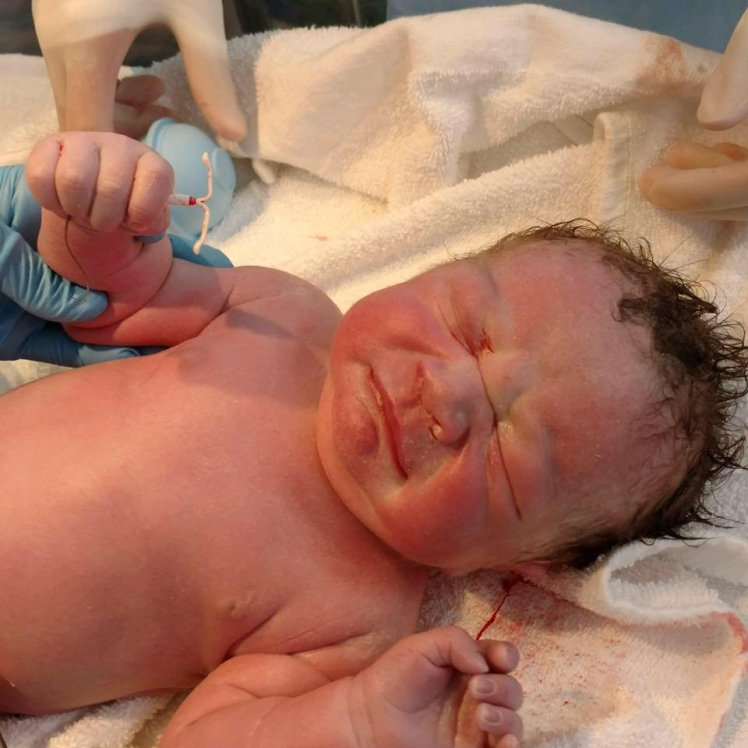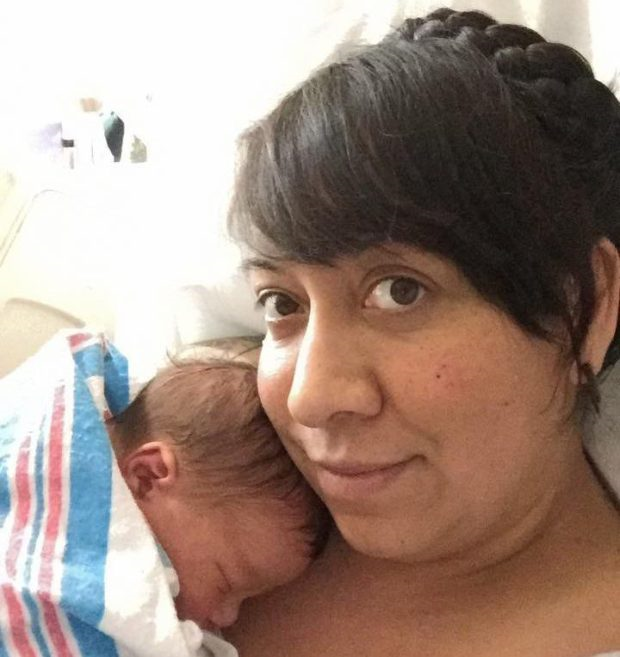A Newborn Baby Poses With His Mum’s Birth Control Fail
Not all birth control is 100% effective in preventing pregnancy.
There is always that rare, or sometimes common, true story of a woman falling pregnant after taking the pill or after her partner has had a vasectomy. The precautions are always made known before the treatment is given. But no one expects they will fall in the 1% chance of falling pregnant.
Lucy Hellein from Alabama, is one such mumma who found herself in that small bracket of women, who fell pregnant after her birth control treatment failed.
Hellein recently gave birth to a baby boy, Dexter a week ago, after she was fitted with a Mirena device that was meant to prevent her from falling pregnant.
The mum shared a picture of her newborn, holding her Mirena device, which has gone viral on Facebook, being shared over 70,000 times!
Hellein told The Metro.co.uk, that this was her third Mirena and her first two worked fine. But her recent one, that was inserted back in August, failed.
‘I found out I was pregnant in December and I’ll admit I was scared because of the Mirena.
‘I assumed I was only a few weeks along, but the ultrasound confirmed that I was already 18 weeks along.
‘My Mirena was no where to be found on ultrasound so my OB assumed that it had fallen out, but I wasn’t convinced.
‘Dexter was definitely meant to be. His original due date was May 4th and even the doctor said ‘the force was strong with this one’.
‘Although he wasn’t planned, my family and I feel incredibly blessed.’
Hellein shared Dexter’s picture online with the following caption: ‘Mirena fail! Dexter Tyler, 27 April 2017 @ 0840 (His original due date was May 4th). He is 9lbs 1oz, 21.5in.’
Baby Dexter was born via a planned c-section and her Obstetrician found her failed Mirena behind the placenta.
Straight after birth, Hellein ‘shut down her baby factory’, by getting her fallopian tube removed.
Mirena have yet to comment on the story, but their site does say the device is over 99% effective in preventing pregnancy.
Hellein was obviously one of those lucky 0.9%, whom the device failed for.











